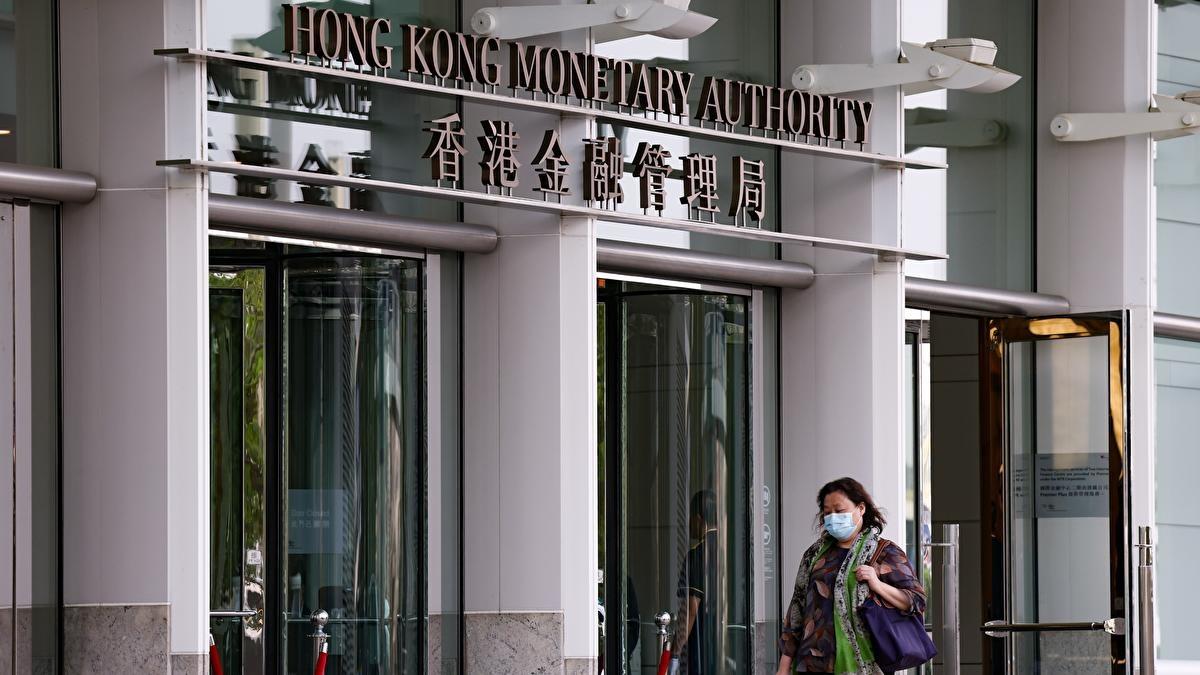 A woman walks past the entrance to the Hong Kong Monetary Authority in Central, Hong Kong, on April 11, 2023. (CALVIN NG / CHINA DAILY)
A woman walks past the entrance to the Hong Kong Monetary Authority in Central, Hong Kong, on April 11, 2023. (CALVIN NG / CHINA DAILY)
Hong Kong’s Exchange Fund posted investment income of HK$212.7 billion ($27.22 billion) in 2023, reversing 2022’s record-high loss of HK$205.4 billion that was fueled by the record-high gain on bonds.
Hong Kong equities continued to incur losses, however. Last year, the loss from Hong Kong equities narrowed by about 21 percent to HK$15.5 billion, from 2022’s loss of HK$19.5 billion, the third consecutive year of losses.
Bonds, other equities, foreign exchange, and other investments all reversed their losses in 2022 to gain in 2023.
READ MORE: Hong Kong Exchange Fund reports $14b gain in H1
Bond investments registered a record-high gain of HK$144 billion due to high bond yields that brought significant interest income.
The time required for inflation to return to the target levels set by major central banks remains uncertain. Should the timing and pace of interest rate cuts fall short of market expectations, it may trigger heightened volatility and corrections in asset prices.
Eddie Yue Wai-man, Chief Executive, Hong Kong Monetary Authority
Other equities brought an investment income of HK$73.2 billion as global equities were generally on an upward trend last year. Other investments gained HK$11.5 billion. Regarding foreign exchange, there has been a negative currency translation effect of HK$500 million on non-Hong Kong dollar assets, which was far better than the HK$40 billion reduction in valuations the previous year.
The Exchange Fund’s investment return last year was 5.2 percent.
Hong Kong Monetary Authority Chief Executive Eddie Yue Wai-man said the interest rate trend and geopolitical risks remain the two main challenges for global financial markets this year.
“The time required for inflation to return to the target levels set by major central banks remains uncertain. Should the timing and pace of interest rate cuts fall short of market expectations, it may trigger heightened volatility and corrections in asset prices,” Yue said at the Friday media briefing.
“The impact of rate hikes on the global real economy has been more visible. Corporate earnings and macroeconomic growth may start to slow down that will bring material uncertainties to global asset markets,” he cautioned.
Geopolitical risks are the other challenges, as the escalation of the Russia-Ukraine conflict, the Middle East conflict and the Red Sea tensions, and the outcome of political elections this year will further increase market uncertainties, Yue said.
Yue said that the Hong Kong equities in the Exchange Fund’s portfolio were brought by the HKMA during the Asian financial crisis of 1998. “They are regarded as part of the long-term asset allocation and are diversified investments. HKMA’s position of maintaining the current exposure of Hong Kong equities in Exchange Fund’s portfolio remains unchanged.”
Howard Lee Tat-chi, CEO of the Exchange Fund Investment Office, said the HKMA will continue to manage the Exchange Fund with prudence and flexibility, implement appropriate defensive measures and diversification, and maintain a high degree of liquidity.
ALSO READ: Guaranteed returns, size lifted on HK's latest Silver Bonds
He also said that although the Hong Kong Special Administrative Region government may record a budget deficit in the future, the HKMA will still pay into the government’s fiscal reserves, as well as government funds and statutory bodies, based on the six-year average return of the Exchange Fund, which is agreed upon by the HKMA and the HKSAR government.
In the fourth quarter of last year, the exchange posted an investment income of HK$106.8 billion, which was far better than the loss of HK$5.5 billion in the previous quarter.
As of the end of 2023, the total assets of the Exchange Fund increased by HK$9.8 billion to HK$4.02 trillion.



